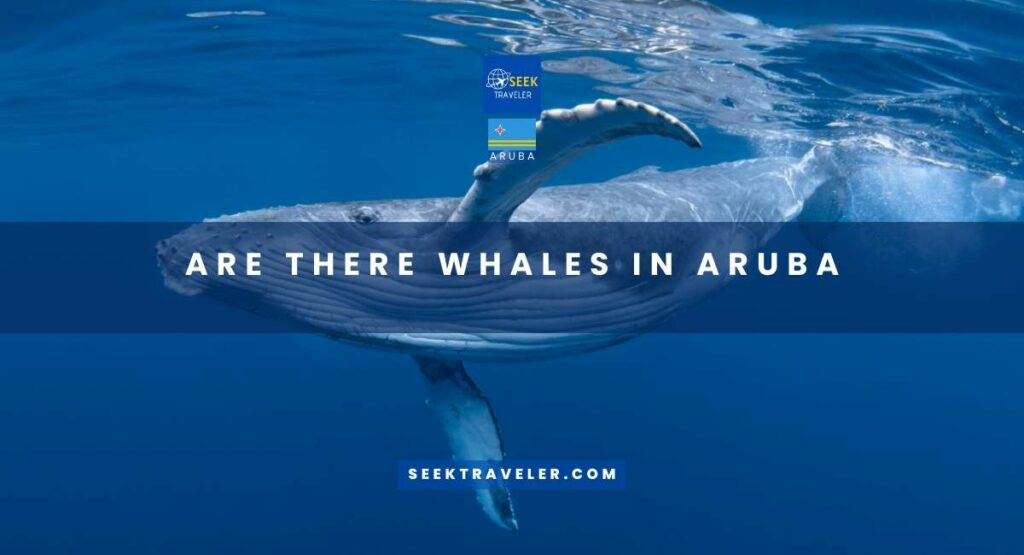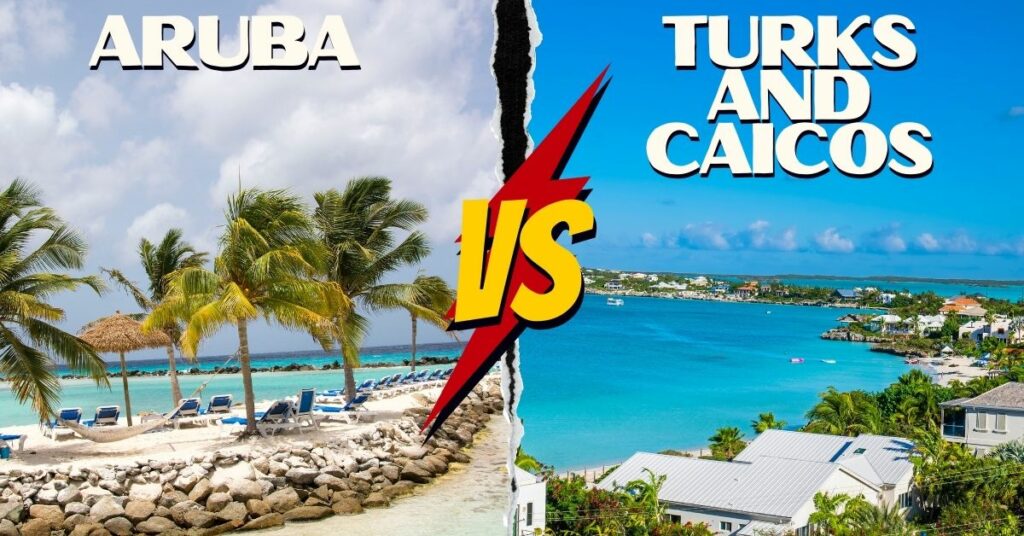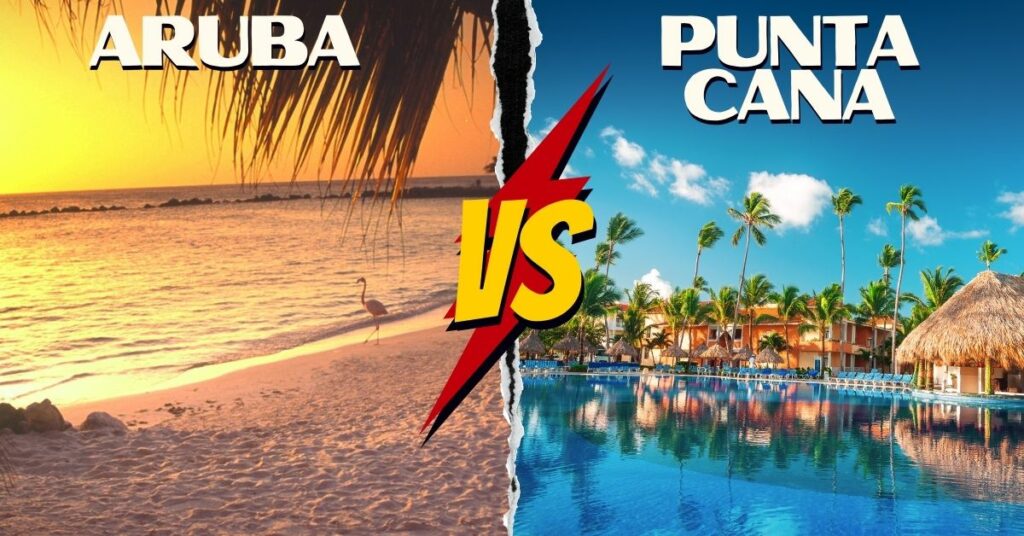Have you ever wondered about the wildlife in Aruba’s waters?
While the island is known for its stunning beaches and crystal clear waters, many visitors are curious about what lies beneath the surface. Specifically, you may be wondering if there are whales in Aruba.
Whale watching is a popular activity in many parts of the world, but does it exist on this Caribbean island?
In this article, we’ll explore reports of whale sightings in Aruba and investigate possible reasons for their presence. Additionally, we’ll delve into responsible whale watching practices and other marine life that can be found in Aruba’s waters.
So strap on your snorkeling gear and get ready to dive into the fascinating world of Aruban wildlife.
Overview of Aruba’s Wildlife
Aruba boasts a diverse range of wildlife, from vibrant tropical birds to elusive lizards. The island’s national parks serve as sanctuaries for many endangered species, such as the Aruban rattlesnake and the Aruban burrowing owl.
In addition to these protected animals, visitors can also spot colorful parrots, iguanas, and even wild donkeys roaming freely throughout the island. As part of its commitment to conservation efforts, Aruba has established several initiatives aimed at preserving and promoting its unique flora and fauna.
These include sustainable tourism practices that minimize human impact on natural habitats and resources, as well as research projects focused on better understanding the behavior and needs of different animal species. With so much to explore in Aruba’s natural environments, it’s no wonder that whale watching in the Caribbean is a popular activity among those who seek adventure and freedom in the great outdoors.
Whale Watching in the Caribbean
Imagine yourself on a boat in the crystal-clear waters of the Caribbean, scanning the horizon for glimpses of majestic marine mammals. Whale watching has become an increasingly popular activity in the region, with tourists flocking to witness these magnificent creatures up close.
However, it’s important to consider the impact of ecotourism on whale populations and their habitats. Conservation efforts are being made to ensure that whale watching activities do not harm these animals or disturb their natural behaviors. Regulations have been put in place to limit the number of boats allowed near whales at any given time, as well as rules about how close boats can approach them.
As a responsible tourist, it’s crucial to only participate in whale watching tours that follow these guidelines and prioritize conservation efforts over profit. With careful consideration and respect for these amazing creatures, we can enjoy this unique opportunity while also protecting them for future generations.
Reports of whale sightings in Aruba have been scarce over the years, but there have been occasional sightings near the island’s coastlines. Stay tuned for more information about potential opportunities to spot whales during your visit to Aruba.
Reports of Whale Sightings in Aruba
If you’re a fan of eco-tourism and want to witness majestic marine mammals up close, it’s important to consider the impact of these activities on their populations and habitats.
Aruba is a popular tourist destination known for its pristine beaches and crystal-clear waters, but did you know that this island also boasts some incredible whale sightings? Yes, you read that right!
Here are four things you should know about whale watching in Aruba:
-
Whales are migratory creatures, which means they travel long distances every year to breed and feed.
-
Aruba is located along a major migration route for humpback whales, making it an ideal spot for whale watching.
-
Humpback whales are the most commonly sighted species in Aruba, but other species such as sperm whales and minke whales have also been spotted.
-
Whale sightings in Aruba typically occur between January and March when humpback whales pass through on their way to breeding grounds in the Caribbean.
These incredible sightings have left many wondering why these magnificent animals would venture so close to shore. Let’s explore possible reasons for whale sightings in Aruba…
Possible Reasons for Whale Sightings in Aruba
You’re in for a treat! Discover the secrets behind these magnificent creatures’ appearances on the shores of this Caribbean paradise. Get ready to dive into the depths of their migratory patterns and unravel the mystery behind their visits.
One possible reason for whale sightings in Aruba is marine migration. These gentle giants travel thousands of miles every year from their feeding grounds to breeding areas, passing through different oceans and seas along the way. As they follow their instincts, they may accidentally end up near Aruba’s coastlines, especially during certain times of the year.
Another factor that could contribute to whale sightings in Aruba is ocean currents. These powerful streams of water can influence where whales go and where they don’t go, depending on temperature, food availability, and other conditions. For example, some species may use warm currents as highways to reach warmer waters, while others may avoid them altogether because they prefer colder temperatures or different types of prey. By understanding how ocean currents work and how whales interact with them, scientists can get a better idea of why whales show up in certain places at specific times.
As fascinating as these explanations are for whale sightings in Aruba, there’s no guarantee that you’ll see them every time you visit. The unpredictability of whale sightings makes it all the more special when you do catch a glimpse of these majestic creatures. So keep your eyes peeled and your heart open to new experiences – who knows what wonders you might discover next?
The Unpredictability of Whale Sightings
It’s always exciting to spot whales in Aruba, but their elusive nature makes it all the more thrilling. The behavior of these magnificent creatures is heavily influenced by environmental factors, such as water temperature and sea currents. These factors can cause whales to migrate across great distances or change their usual patterns of movement.
Whale sightings in Aruba are unpredictable because they are not a regular occurrence. Even when conditions seem favorable for sightings, there is no guarantee that you’ll see one. This uncertainty adds to the allure of whale watching, making it an exhilarating experience for those who love nature and adventure.
As we explore local efforts to protect Aruba’s wildlife, it’s important to remember the magic of seeing whales in their natural habitat and the importance of preserving this wonder for future generations.
Local Efforts to Protect Aruba’s Wildlife
You can be a part of the efforts to protect Aruba’s wildlife by supporting local conservation initiatives. Community involvement is crucial in ensuring that the rich biodiversity of this island nation is preserved for future generations.
Conservation efforts are being made to protect not only land-based species, but also those in its surrounding waters. Aruba has taken steps towards sustainable tourism practices, including responsible whale watching practices. These practices allow visitors to witness these majestic creatures without causing harm or disruption to their natural behavior.
By being mindful of our impact on the environment and actively supporting conservation initiatives, we can ensure that Aruba remains a sanctuary for both humans and wildlife alike.
Responsible Whale Watching Practices
If you want to witness the majesty of these amazing creatures without disrupting their natural behavior, then responsible whale watching practices are a must. Ethical tourism is crucial in conservation efforts and protecting endangered species, such as whales.
Here are three important tips to keep in mind during your next whale watching excursion:
- Keep a safe distance – maintain at least 100 yards between your boat and the whales.
- Do not approach or chase them – let the whales come to you if they choose.
- Turn off your engine when near them – this reduces noise pollution and allows for a more peaceful interaction with the whales.
By following these guidelines, you can experience the thrill of observing these gentle giants up close while also contributing to their preservation and well-being.
As you explore Aruba’s diverse marine life, it’s important to remember that there are many other fascinating creatures living beneath the surface besides whales. From colorful tropical fish to sea turtles and rays, there’s no shortage of marine diversity waiting for you on your next adventure!
Other Marine Life in Aruba
Aruba’s vibrant underwater world is a paradise for snorkelers and divers alike. The crystal-clear waters surrounding the island are home to an array of marine creatures, including over 500 species of fish. You can spot schools of brightly colored parrotfish, angelfish, and sergeant majors darting between coral formations in popular snorkeling spots such as Mangel Halto and Boca Catalina.
In addition to fish, Aruba’s waters also host other fascinating marine life. Keep an eye out for the graceful sea turtle gliding past you or the elusive octopus hiding among rocks and seaweed. One of the most breathtaking sights is seeing the majestic eagle ray with its wingspan up to 10 feet gracefully glide through the water.
Aruba’s diverse marine ecosystem offers a unique experience that will leave you in awe.
As you have explored some of Aruba’s marine life diversity, it’s time to address one question: are there whales in Aruba? Despite being rare sightings, humpback whales have been spotted off the coast during their annual migration from breeding grounds near Antarctica to feeding areas in warmer waters.
While it may be difficult to spot these magnificent creatures during your visit, keep your eyes peeled and who knows what wonders you may discover under the waves!
Conclusion: The Possibility of Whales in Aruba’s Waters
Imagine yourself gazing out into the vast blue expanse of the ocean surrounding this tropical island, wondering what magnificent creatures might be making their way through these waters. You might be surprised to learn that whales are actually known to pass by Aruba during their migration season.
While they may not be a common sight, there have been reports of humpback and sperm whales being spotted in these waters. One factor that could contribute to whale sightings in Aruba is their annual migration pattern. Humpback whales, for example, migrate from polar regions to warmer waters near the equator during the winter months to mate and give birth.
The Caribbean Sea is one of the routes they take, and Aruba’s location along this route means there is a chance for lucky observers to catch a glimpse of these majestic creatures. Environmental factors such as water temperature and food availability may also play a role in attracting whales to the area.
So while it may not be guaranteed, keep your eyes peeled next time you’re out on the water – you never know what wonders you might spot!
Frequently Asked Questions
What is the average temperature in Aruba?
If you’re planning a trip to Aruba, it’s important to know the climate patterns and weather forecast. The average temperature in Aruba is around 82 degrees Fahrenheit, with very little variation throughout the year. This means that no matter when you visit, you can expect warm and sunny weather.
It’s worth noting that Aruba lies outside of the hurricane belt, which makes it an attractive destination for travelers looking to avoid stormy weather. Additionally, because of its location near the equator, there isn’t much day-to-day variation in temperature or precipitation.
Overall, if you’re seeking consistent warmth and sunshine during your vacation, Aruba is an excellent choice.
What are the best beaches to visit in Aruba?
As you step onto the pristine sands of Aruba, your senses are immediately awash with a sense of liberation. The gentle lapping of crystal-clear water against the shore beckons you to indulge in beach activities such as snorkelling and paddleboarding.
But amidst all the fun, it’s crucial to prioritize beach safety by following guidelines such as swimming within designated areas and keeping an eye on changing weather conditions. Moving further down the coast, Eagle Beach’s powdery white sand offers a picturesque backdrop for sunbathing while Palm Beach boasts an array of watersports.
Whether you choose to take a dip in Baby Beach’s calm waters or explore Boca Catalina’s coral reefs, remember that freedom comes with responsibility – always respect nature and leave nothing but footprints on these stunning beaches.
What is the local cuisine in Aruba?
If you’re curious about the local cuisine in Aruba, get ready to indulge in a tantalizing array of seafood specialties and fusion cuisine.
From succulent lobster tails and shrimp to fresh fish cooked to perfection, Aruba has something for every seafood lover.
You’ll also find a delicious blend of European, Caribbean, and South American influences that create a unique culinary experience.
Whether you’re savoring the flavors of traditional dishes like keshi yena or discovering new favorites like ceviche, Aruba’s local cuisine is sure to tantalize your taste buds.
So if you have a subconscious desire for freedom and adventure through food, be sure to explore all the delectable dining options that this island paradise has to offer!
What is the history of Aruba’s economy?
Want to know how Aruba’s economy grew over the years? The small island nation underwent a significant transformation from being heavily reliant on oil refineries to developing a thriving tourism industry.
In the 1920s, the Lago Oil and Transport Company established an oil refinery in Aruba, which became the primary source of income for the country. However, with declining profits in the 1980s, Aruba had to look for other opportunities to sustain its economy.
As a result, it shifted its focus towards tourism industry development and invested in infrastructure improvements like hotels, restaurants, and attractions. Today, tourism contributes about three-quarters of Aruba’s gross domestic product (GDP), making it one of the most prosperous nations in the Caribbean region.
What are the top tourist attractions in Aruba?
Aruba is a beautiful island that boasts amazing outdoor activities and vibrant nightlife entertainment. Whether you’re into water sports like snorkeling, diving, or windsurfing, or prefer to explore the natural beauty of the island by hiking, biking, or horseback riding, Aruba has something for everyone.
At night, the island comes alive with an array of bars, clubs, and casinos offering live music performances and delicious cocktails. If you’re looking for a vacation destination that combines adventure with relaxation and fun-filled nights, then Aruba should be at the top of your list!
Conclusion
So, you’ve come to the end of this article and still wonder if there are whales in Aruba. While reports of whale sightings do exist, the presence of whales in Aruba’s waters cannot be guaranteed. These magnificent creatures can be unpredictable and difficult to spot.
However, that doesn’t mean you should give up hope of catching a glimpse of these giants. The beauty and mystery of Aruba’s marine life is worth exploring and protecting. By practicing responsible whale watching techniques and supporting local efforts to preserve wildlife, you can help ensure that future generations will have the chance to witness these awe-inspiring creatures in their natural habitat.
So go ahead, set sail on your adventure with a sense of wonder and respect for all the wonders that lie beneath the waves.
As you gaze out at the vast expanse of ocean before you, remember that it holds secrets beyond our understanding; mysteries waiting to be uncovered by those brave enough to venture into its depths. And while we may never know for sure whether or not there are whales in Aruba’s waters, what we do know is that this small island nation is home to countless other species just as fascinating and deserving of our attention.
So take a deep breath, dive into the blue unknown, and discover all that this magical place has to offer.

Meet Michael Graham, the main author of SeekTraveler.com. With a wanderlust that knows no bounds, Michael has traversed more than 30 countries across the globe. From sun-soaked Caribbean islands to the ancient marvels of Europe and the captivating charm of Japan, he has witnessed the wonders of diverse cultures firsthand. Michael’s in-depth knowledge and contagious enthusiasm for travel will inspire you to pack your bags and embark on your own extraordinary journey.



